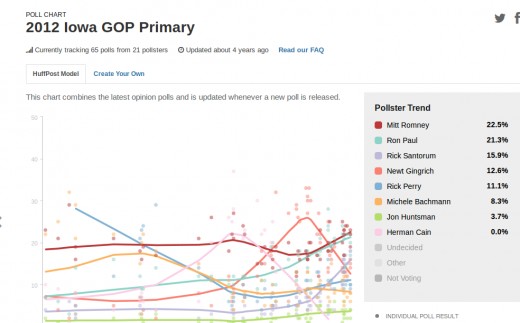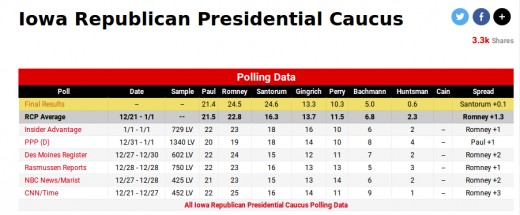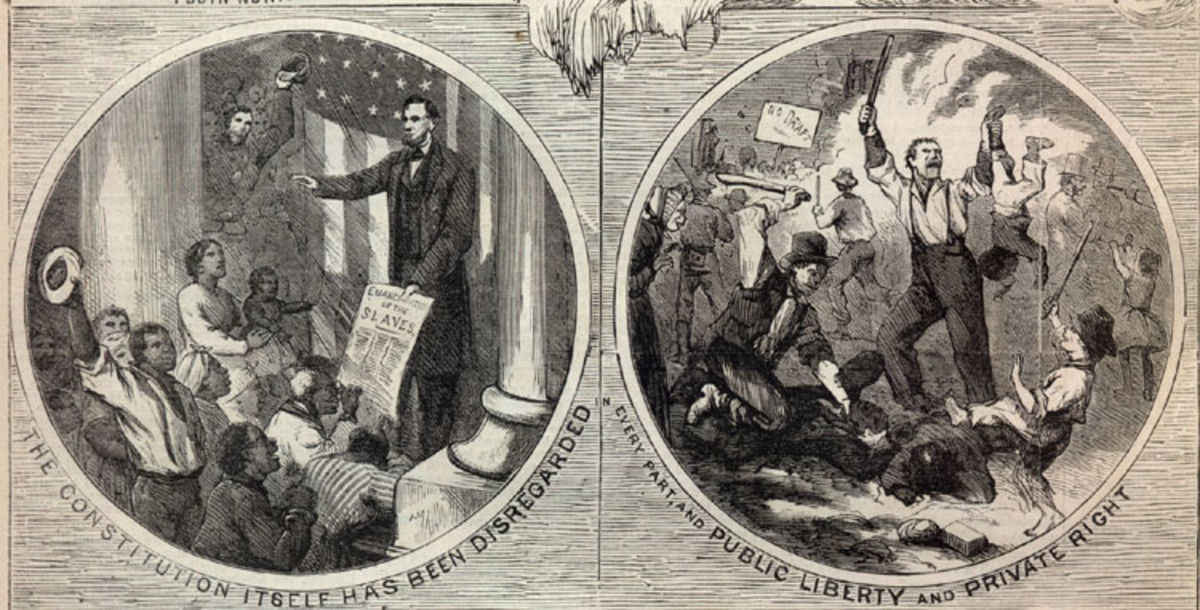Will Pro-Hillary Party Bosses Rob Bernie Sanders of Victory in Iowa Caucuses?
2012 Interview with GOP strategist Dee Dee Benkie
In a 2012 radio interview before the Iowa caucus, Republican strategist Dee Dee Benkie let the cat out of the bag: GOP officials were “concerned” about the likelihood of a Ron Paul victory in Iowa’s influential, first-in-the-nation primary caucus. "I've talked to Iowa officials, I know they're concerned about it," said Benkie, who then said something remarkable. "I kind of think they’re going to keep him from getting the number one spot because they are concerned."
Besides the fact that acting to keep Paul “from getting the number one spot " would constitute election fraud, what made Benkie's statement even more troublesome was the fiasco which followed, and indications that her felonious suggestions were more than idle talk. But her statements, and the high-stake hijinks which followed, never generated as much as a peep from authorities who surely would have thrown the book at any illegal Mexican migrant worker caught attempting to cast an illegal ballot.
The Washington Post said Santorum’s victory:
"...served to embarrass the Iowa GOP — which had to admit that it had misallocated some votes, and simply lost some others, in a razor’s-edge election where every vote mattered."
The Post called the Santorum victory "strange."
Jump to 2016, and the Bernie Sanders campaign finds itself in strangely similar circumstances. The polls show a virtual tie between Sanders and Clinton, with Clinton polling perhaps a point ahead. Sanders is considered, by the Democratic party leadership, to be unelectable and an ideological aberration. And the party vote counting apparatus is dominated by Clinton supporters lock, stock, and barrel.
To be sure, in 2012 the Iowa GOP was not really united behind any particular candidate, as much as it was united against Ron Paul.
Paul was virtually tied with national front-runner Mitt Romney in numerous polls, and polling a comfortable five points ahead of late arrival Rick Santorum. Nevertheless, Santorum came from behind and was declared the winner of the contest by 34 votes.
Perhaps helping this along was the series of rules changes, blunders, and inexplicable anomalies which took place before and during the caucus. Among them were:
- For the first time allowing voters in the caucus to register with no ID. The very specter of repeat and unqualified voters which Republicans thundered against in Congress when the target was illegal aliens, they now opened the floodgates for.
- The relocation of the central vote counting process to an “undisclosed location,” out of view of the campaigns and the public.
- The loss of eight entire precincts of votes
Although the 2012 fiasco was about the Iowa Republican party, observers, such as Iowa State political science professor Steffen Schmidt, say the system used by Iowa Democrats is not much better. A look at how Ron Paul started out a front-runner and wound up an increasingly distant third should alert Sanders supporters to how these things are done, and when to cry foul at full volume.
At the last minute before the caucuses, Iowa GOP officials announced that the main counting process would be held at a secret location, due to “threats” by Occupy Wall Street to “disrupt” the counting process.
But a close look at what OWS actually said before the caucus and a cursory review of the movement’s tactics shows that no such threat existed.
Radio Santa Cruz reported:
“Washington, Dec 27.-The Occupy Wall Street (OWS) movement on Tuesday will begin in Iowa a popular election assembly, a week before the first GOP primaries. The Occupy Iowa Caucus planned a meeting on Tuesday night in Des Moines, the state capital, some days ahead of the Republican party which on January 3 will hold its primaries, the group said on its website. According to the Occupy Des Moines call, in the celebration also known as the People's Caucus, the organizers will present and discuss complaints made for months by the OWS movement and for 99 percent of the population...”
The OWS announcement was in keeping with its practice of holding “general assemblies” in which participants aimed to build parallel democratic structures, not take over existing ones. Moreover, any attempt to disrupt the vote counting process would certainly mean confrontation with police, and in its press release, Occupy vowed a “peaceful” presence, as it had maintained across the country, and almost always attacked by police first.
In short, OWS was merely used as a pretext to move the vote counting out of sight.
Then, in contrast to the well-known Republican party position that allowing voters to register without a form of positive identification invited fraud and ballot-box-stuffing, the Iowa GOP suddenly adopted a measure which invited exactly that. Without ID, any person could show up from any state and vote in the caucus. There was nothing even to prevent that person from going to another precinct and voting again. The rules change practically begged Republican party operatives to put into practice the words of Chicago mayor Richard Daley: "vote early, vote often."
Given that the Iowa caucus is one of the most closely-watched contests in the world, with the "momentum" generated from a victory used to justify the rapid narrowing of media focus, it is nothing short of breathtaking that Iowa caucus officials managed to lose not just a number of votes in a precinct, or in a few precincts, but eight entire precincts.
After the caucus the Washington Post reported that:
“Iowa Republican leaders seemed to cast doubt on their own results, saying Thursday that it was hard to declare a “winner” without knowing what happened in those eight precincts.”
In 2012 Iowa GOP officials made the determination, on their own, that a Ron Paul victory would be bad for the party. Strategist Dee Dee Benkie said in the interview that Paul was viewed as having a “snowball’s chance” during the rest of the election season, despite Paul being the Republican candidate who showed the greatest strength in a poll which placed him head-to-head against Obama. In 2016, the same is being said about Bernie Sanders, by the Clinton-dominated party hierarchy: that he is bad for the image of the Democratic party, that he would fare badly in the general election. Given such a climate, it is easy to see how the same set of rationales could be used, in the minds of creatures loyal only to party, to justify thwarting the will of the voters in the contest between Clinton and Sanders.
Besides the eight lost precincts and the other shenanigans, the 2012 caucus displayed a mishmash of errors, inaccuracies, and snafus which could provide perfect cover for election-stealing. The Des Moines Register reported that:
“GOP officials discovered inaccuracies in 131 precincts, although not all the changes affected the two leaders. Changes in one precinct alone shifted the vote by 50 — a margin greater than the certified tally.”
The Mystery of the Missing Precincts did not stop with the eight which were never found. The Des Moines Register revealed that at one point “party officials had to hunt down dozens of missing precincts.”
When all was said and done, to casual shrugs that mistakes were made, from a distant third in the polls behind Romney and Paul, who were virtually tied, Santorum had edged out Romney, and Paul had dropped to four points behind both of them. But as if to vindicate those who shouted that Paul's strength was much stronger than the caucus showed, in the Iowa primary in August, at which delegates to the national convention are actually selected, Ron Paul supporters swept 21 of 25 delegate positions.
With Iowa and the New Hampshire contests approaching yet again, it behooves the American public to cast a gimlet eye toward the contests which, for all their flaws, inaccuracies, and opportunities for thwarting the will of voters, are taken as cues for whom the major media will cover for the next ten months. It is not up to operatives in either party to decide who is "electable" and who is not. That decision belongs to the American public.







